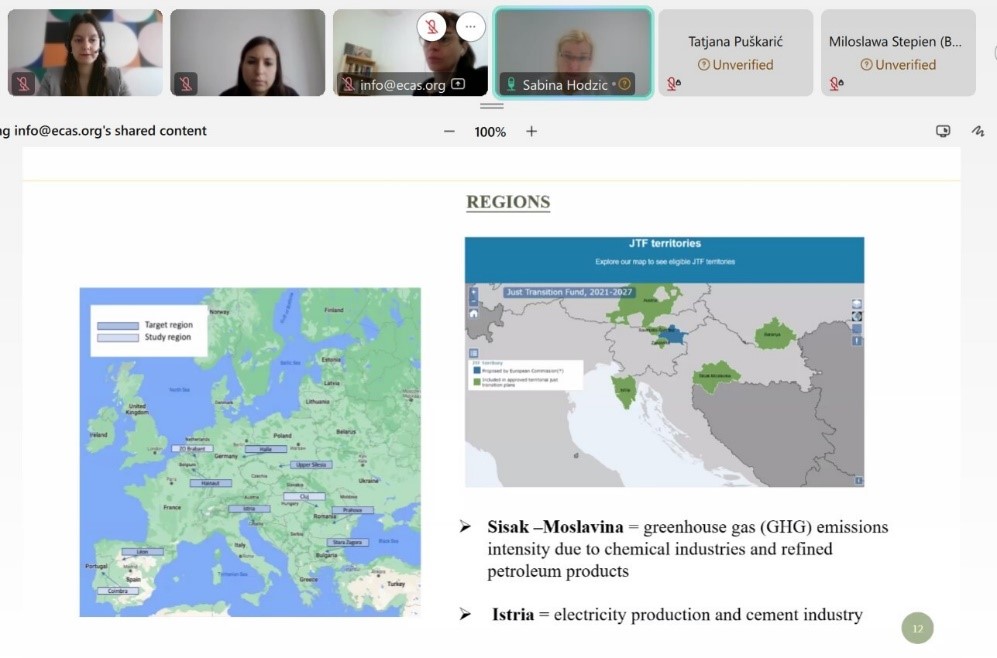Prof. Adam Dronbinak discussed the roles of economic actors in local green transitions, with a focus on perspectives from Silesia, Poland. He highlighted the territorial, sectorial, and governance contexts, emphasising that the transition away from coal and towards green industries involve numerous stakeholders with different interest. The nature of conflict often arose between coal-intensive industries and green SMEs, NGOs, and regional and local authorities. While coal regions needed to bear the costs of transition, the European Green Deal became a priority, requiring adaptation to climate change and the development of green technologies.
Eliza Barnea provided insights into the Romanian Territorial Just Transition Plan (TJTP), a programme with six regional involvements and a budget of €2.53 billion. Over half of the funding was allocated to SME development and entrepreneurship, which played a crucial role in economic diversification and employment generation. Barnea emphasised the importance of SMEs in tackling intraregional disparities, promoting green skills, and mainstreaming climate action. However, she also highlighted several challenges and their potential solutions such as low public awareness, low labour market participation, skills gap, low innovation capacity, and digitalisation. To address this, Barnea suggested new media campaigns, workshops, and community engagement activities. Incentives for implementing measures to tackle informality, decentralisation of occupational mediation services, and progressive taxation were recommended and developing collaborative ecosystems could help boost innovation.
The panel discussion focused on the challenges faced by small and micro-businesses in the green transition process. Participants emphasised the need for networking, learning, special measures, and funding programmes to facilitate the transition. Additionally, local, and regional governments should provide transparent information about the transition, organise awareness campaigns, and engage workers in decision-making processes.
In conclusion, the Second Bolster Regional Policy Dialogue provided valuable insights into the challenges and opportunities of a just transition in coal-dependent regions. It emphasised the crucial role of SMEs, the need for public awareness, and the importance of engaging local communities in the transition process. The EU's role in supporting the just transition was also a central point of discussion, highlighting the need for more targeted and innovative approaches.
